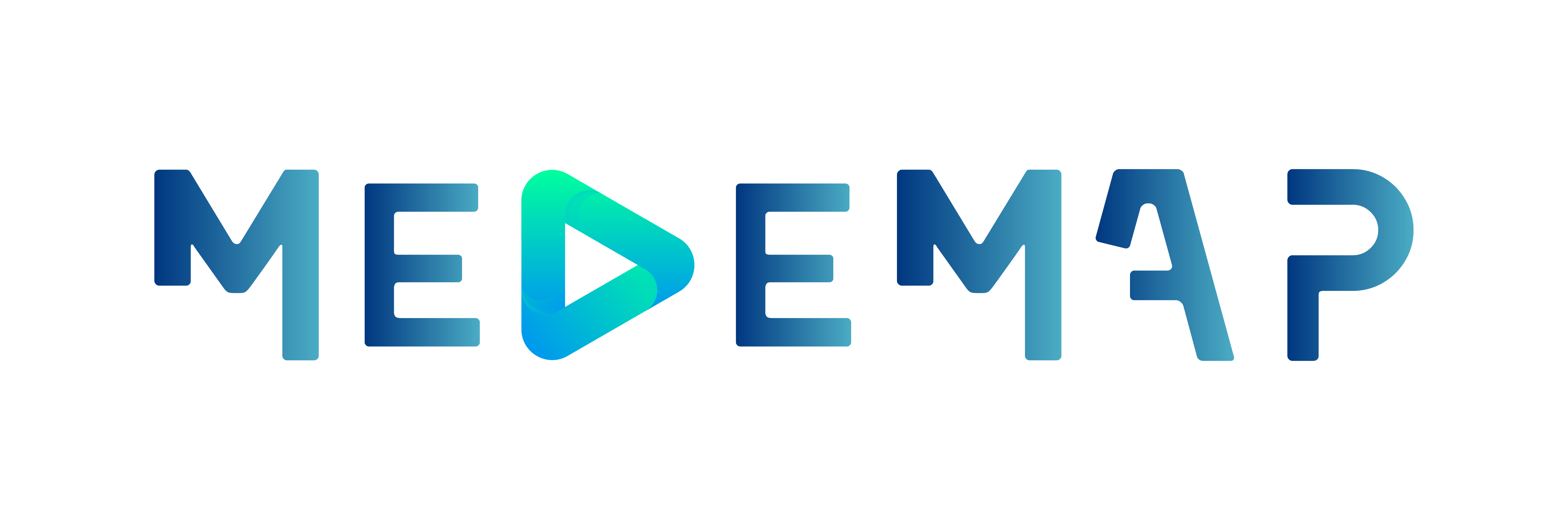The MeDeMAP consortium gathered between the 18th and 20th of September in Krakow (Poland) for its fourth project meeting. The gathering, hosted by Jagiellonian University, brought together partners to reflect on the first theoretical frameworks and early field results, fostering a rich exchange of ideas around media, democracy, and participatory practices.
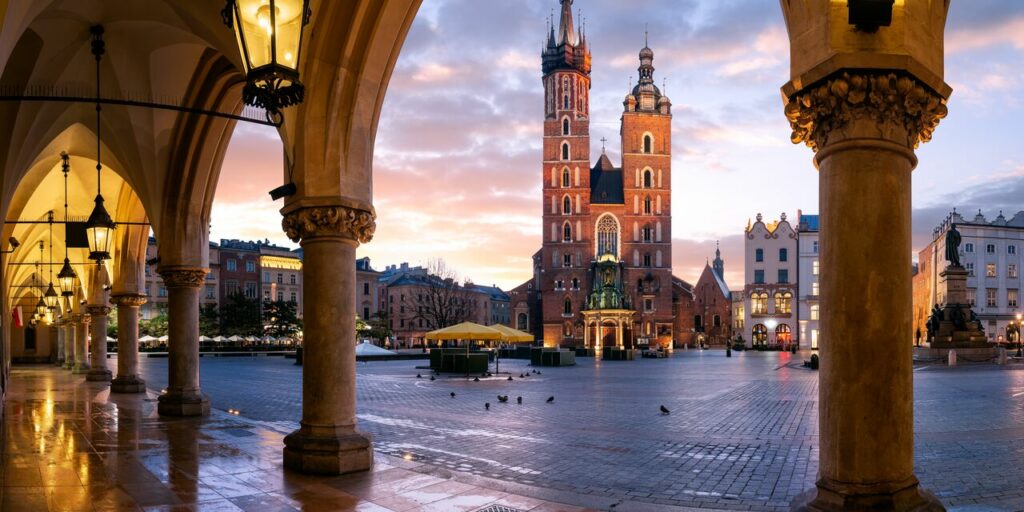
©KLM
One of the key highlight of the meeting was a special panel organized by the Charles University team. The session focused on the challenges and possibilities of democracy and media. Nico Carpentier opened the panel with a presentation titled “Democratic Hybridities: A Model to Emphasize Struggles of Democracy and Media”, exploring the complex interplay between these two fields. Vaia Doudaki followed with insights on the “Conditions of Possibility for Democratic Media,” examining the factors that enable or constrain media’s democratic role. Jeffrey Wimmer rounded out the session with a talk on “Countering the Threat of the Colonization of the Public Sphere,” using Mastodon as a case study of small-scale, counter-hegemonic practices aimed at resisting dominant narratives.
Participatory models and legal frameworks
Krakow’s meeting was also an opportunity for partners to look deeper into the development of Citizen Parliaments. Helmut Peissl from COMMITT (Austria) chaired a discussion that counted with presentations from Laurence Monnot, Milos Hroch, Nico Carpentier and Josef Seethaler. Laurence Monnot provided a comprehensive literature review on citizen parliaments, while Milos Hroch shared strategies for recruiting participants for the Czech Citizen Parliament. Nico Carpentier’s presentation was titled “PARifying Citizen Parliaments” and explored the reconciliation of two participatory models. Josef Seethaler then introduced an experiment comparing online and face-to-face citizen parliaments, examining how different modes of participation influence the democratic process itself.
Legal and regulatory frameworks were also a major focus of this project meeting. Josef Seethaler and Maren Beaufort (OEAW) chaired a session in which Barbara Thomass (OEAW) presented on the topic of media ownership, discussing how diversity in ownership structures can help safeguard the democratic functions of media by preventing monopolies and promoting pluralism.
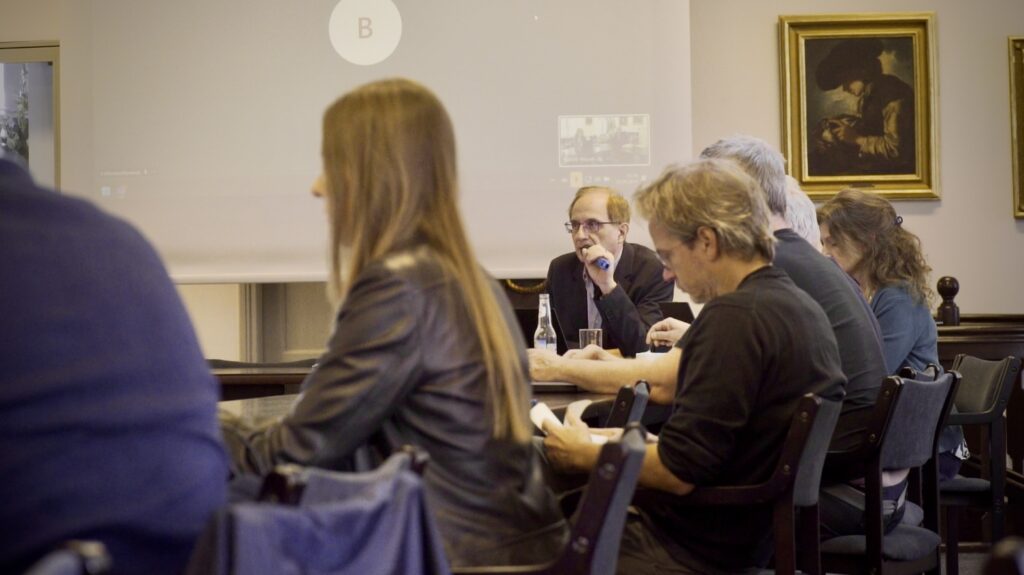
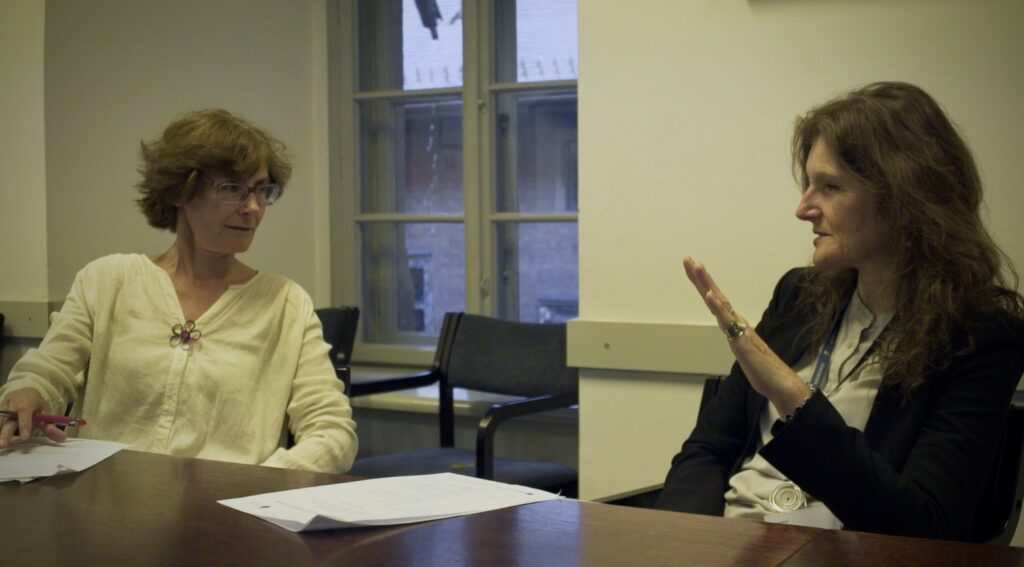
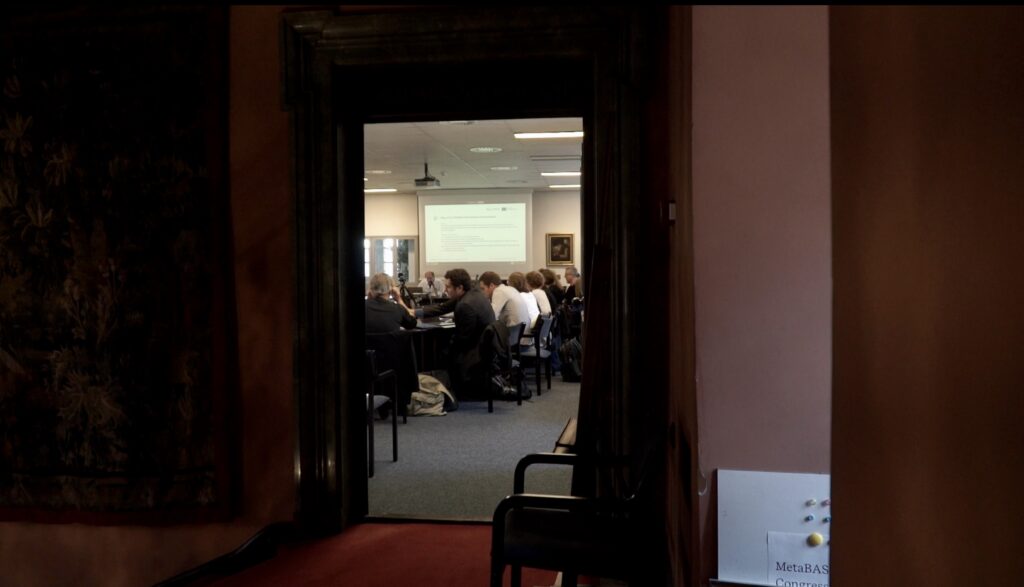
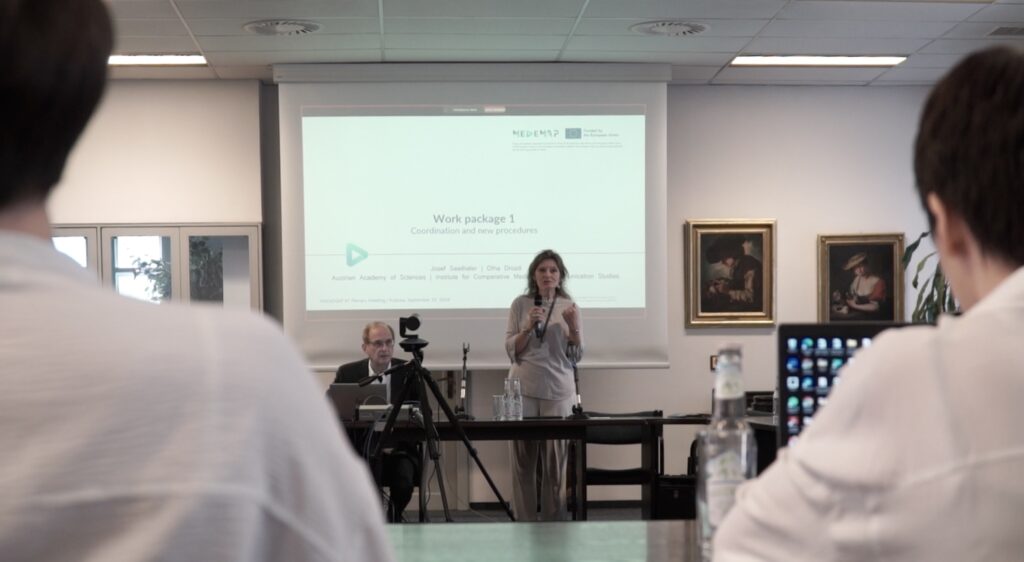
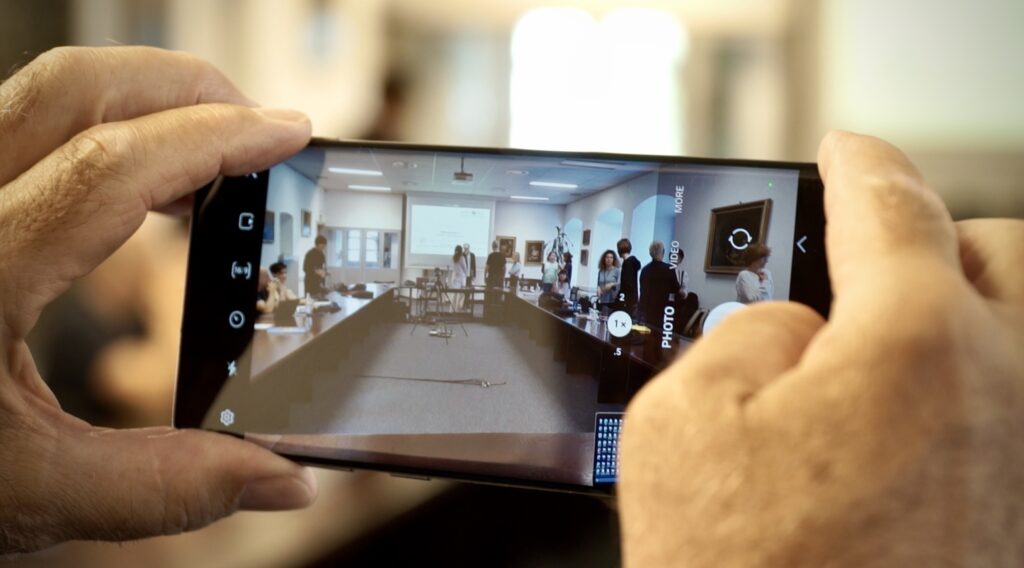
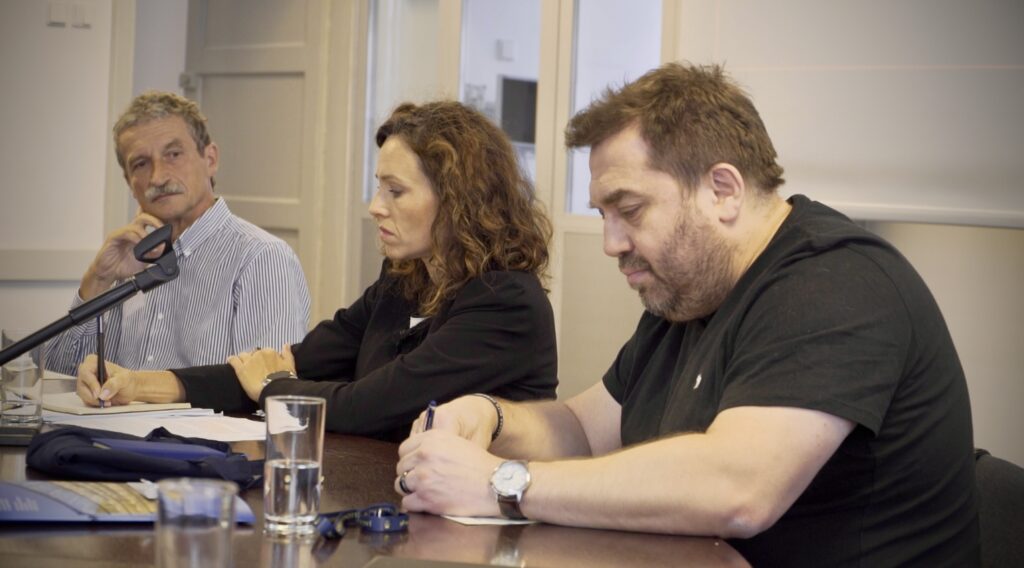
The focus on comparative media analysis
In addition to the theoretical discussions, IMT Atlantique’s team presented an empirical analysis of the media landscape in France and shared the plans for expanding this research into an international comparative study. This contribution emphasized the importance of understanding media systems in different national contexts to develop a broader perspective on global media trends.
The final sessions of the meeting focused on media supply and production, with Beata Klimkiewicz and Monika Szafrańska (Jagiellonian University) offering a comparative analysis across different media systems. This analysis intends to deepen the understanding of how media structures can either support or hinder the functioning of democratic societies.
Experts discuss news media for future democracies
The meeting also featured a stakeholder session titled “Reactivation: The News Media for Future Democracies,” which brought together leading figures from academia and journalism to discuss the role of media in supporting democratic systems. Professor Josef Trappel from the University of Salzburg was among the speakers, along with Bartosz Węglarczyk, Chief Editor of onet.pl, Magdalena Chrzczonowicz, Chief Editor of OKO.press, and Dominika Bychawska-Siniarska from the Prague Civil Society Center and the Polish Academy of Sciences. This discussion underscored the critical need for media to adapt and respond to the evolving demands of democratic societies, particularly in the digital age.
The fourth meeting of the MeDeMAP project represented a significant step forward in the consortium’s ongoing research on Media for Future Democracies. The discussions highlighted the most recent theoretical advancements in understanding the relationship between media and democracy, as well as the practical applications of the research in different national contexts. By fostering collaboration across countries, entities and disciplines, the consortium will continue to explore ways and opportunities to strengthen democratic participation through media.
